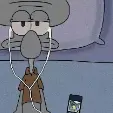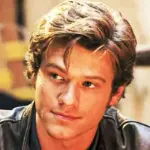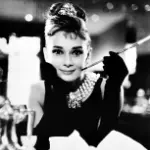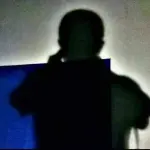On December 11, 2022, Ryuichi Sakamoto’s solo piano concert streamed to the world. This live broadcast was recorded at the studio before, but it was an unusual experience for him and his audience.
In 2014, Ryuichi Sakamoto was diagnosed with cancer. By 2022, his cancer had reached stage four. He cannot hold concerts in stadiums and auditoriums as he used to.

Ryuichi Sakamoto: Playing the Piano 2022
1-An excellent film musician
Sakamoto has always been a movie fan. At the age of 26, he joined the band Y.M.O., and wrote songs such as "Tong Poo", "La Femme Chinoise" and "Pierrot le fou", borrowing the title of Godard's films.

《イエロー・マジック・オーケストラ(Y.M.O)》(1978)
During his life, it seemed that fate wanted to tie Ryuichi with the film industry. At the age of 31, Japanese director Nagisa Oshima proposed to cooperate with him in "Merry Christmas, Mr. Lawrence". Sakamoto not only agreed to play in the movie but also asked to do the film's soundtrack.
The cooperation between a famous director and a novice musician is a very "bold" attempt. What's more, this film gathers four Capricorn talents: David Bowie, Takeshi Kitano, Nagisa Oshima, and Ryuichi Sakamoto. "Forbidden Colours", which he worked with David Sylvian, is even more impressive and affectionate.
Click to listen to “Forbidden Colours”
Three years later, Sakamoto joined the cast of "The Last Emperor" as an actor. But one day, the director asked him to score the scene of "Puyi's accession to the throne". Later, his work became creating the soundtrack of the whole film. I have to say that Bertolucci was really "crafty".
At first, Sakamoto asked Bertolucci what type of music he wanted. and he said that, although the movie's set in China, it is a European film. Although the story starts before World War II and lasts until the war, it should be considered a modern film.
This answer meant nothing, but we all know that Sakamoto did it.
Click to listen to "Rain"
In this interlude, the violin's fast bow expresses anxiety and urgency, while the cello appears at the beginning of each bar, showing the determination to leave.
That is a film with a complex and distant background, but the soundtrack Sakamoto can make the audience feel the will and thoughts across time and space. Compared with "Merry Christmas, Mr. Lawrence", "The Last Emperor" is more modern, diversified, and mature. This film became a big hit at the 1988 Academy Awards and won the Academy Award for Best Original Score with expectations.
Later, he participated in another project produced by Bertolucci, "The Sheltering Sky". This story takes place in the Sahara Desert of North Africa, and the music is also interspersed with Arabic music elements.
The endless plain makes the main characters look very small. While the song "On the Hill" slowly enters, sadness sets down.
Click to listen to "On the Hill"
2-All-inclusive music
There are so many stories about films and Sakamoto, but the sountracks are only a part of his music productions. In his autobiography "Music makes people free", he said that he "did not deliberately want to be a musician".
When he learned he had cancer, he took a year off having in mind that it would "probably be the last album", he produced "async" in 2018.
It will probably be unacceptable to most people who listen to the album because many sources of sound cannot be called "instruments". For example, a small iron rod is rhythmically struck on a piano string to create the sound of water droplets; with the hollow steel pipe friction strings, send out a thick wind; and more, with a rubber tip stick, rubbing it against the glass to create an ethereal sound.
The audience could not use precise words to summarize what he expresses in the music.
The last episode of "Love, Death & Robots" Season 2, Jibaro, uses the soundtrack of Sakamoto's "Fullmoon" included in the "async" album.

Jibaro
Voice-over adds to the melody. It sounds like Japanese, Chinese, French, English, etc. in the background of the confusing sentences, the piano plays chords to stimulate inner emotions.
He combines sound and music like a container, large enough to hold all emotions and small enough to embrace vulnerabilities.
Presumably, this creativity, which is not limited to "definition", is what he has always wanted. He is more like a recorder than a composer, incorporating any sound. The meaning of the work needs to be understood by the audience.
Click to listen to "Fullmoon"
3-Death will come
Sakamoto is beautiful in all ways, his looks, his work, and his attitude towards life.
He cares about the people around him. In the 2011 Tokyo earthquake, he came to the shelter in the earthquake area and played the song "Merry Christmas, Mr. Lawrence" for everyone in the dark school auditorium. On a cold night, his music brought a little warmth to the people still in shock.
He also thinks a lot about his heart's health. After being diagnosed with rectal cancer for the second time, he said: "In the days to come, I will "co-exist with cancer"". In his diary, he wrote down the process of fighting against cancer. At the same time, he also pondered how to accept his faith and death.
When pressing down a key, you hear a sound. However, the sound will gradually disappear, fade away, and be emersed by the ambient sound. But what if it doesn't want to disappear?

Sakamoto is working.
Remember the "Fullmoon" song I mentioned before? Well, those voices heard on the background are not nonsense, those are sentences: the last paragraph in "The Sheltering Sky" is also Sakamoto's favorite sentence.
"Because we don't know when we will die,
we get to think of life as an inexhaustible well.
Yet, everything happens only a certain number of times.
How many more times will you remember a certain afternoon of your childhood?
Some afternoon that's so deeply a part of your being that you can't be conceived of your life without it?
Perhaps four or five times more. Perhaps not even that.
How many more times will you watch the full moon rise?
Perhaps twenty.
And yet it all seems limitless."
In 2017, the documentary "Ryuichi Sakamoto: CODA" was completed, and Ryuichi himself appeared. Coda is a musical term that refers to the last paragraph of the movement that emphasizes the ending effect.
Every piece of music has its end, and so does life. If we can bring something to others and leave something to the world when we are alive, that's eternity.
I can't help but feel sad when I write this. Not because Sakamoto is such an excellent musician, but because all living beings are equal and life and death are desolate.
In the camera, the emaciated Sakamoto sits in front of the piano and starts to write a hymn, "Solari". It is also the most strong song on the album. It is not difficult to notice that this is a piece of work that pays tribute to Andrei Tarkovsky's "Solaris".
And he said this is his hymn.











































Share your thoughts!
Be the first to start the conversation.